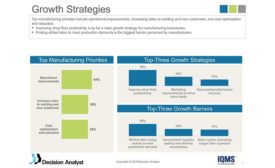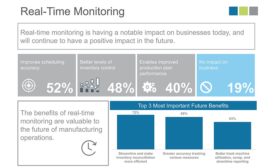Louis Columbus
Louis Columbus is currently serving as principal of DELMIAWorks. Previous positions include product management at Ingram Cloud, product marketing at iBASEt, Plex Systems, senior analyst at AMR Research (now Gartner), marketing and business development at Cincom Systems, Ingram Micro, a SaaS start-up and at hardware companies. He’s also a member of the Enterprise Irregulars. Professional experience includes marketing, product management, sales and industry analyst roles in the enterprise software and IT industries. Columbus’ academic background includes an MBA from Pepperdine University and completion of the Strategic Marketing Management and Digital Marketing Programs at the Stanford University Graduate School of Business. He teaches MBA courses in international business, global competitive strategies, international market research, and capstone courses in strategic planning and market research. Columbus has taught at California State University, Fullerton: University of California, Irvine; Marymount University, and Webster University. You can reach him on Twitter at @LouisColumbus.
ARTICLES
Manufacturers’ Top Demands For Quality Software in 2022
Demystifying the Digital in Quality Management
Taking a Data-Driven Approach to Commercial Automotive Quality
Defining the Future of ERP in a Quality-Driven World
How High-Performing Medical Manufacturers Turn Quality into Growth
How Quality Helps Customers Soar Applying Real-World Best Practices in Aerospace Quality
Seven Ways Gage Management Improves Product Quality and Enables Growth
Stay in the know with Quality’s comprehensive coverage of
the manufacturing and metrology industries.
eNewsletter | Website | eMagazine
JOIN TODAY!Copyright ©2024. All Rights Reserved BNP Media.
Design, CMS, Hosting & Web Development :: ePublishing








